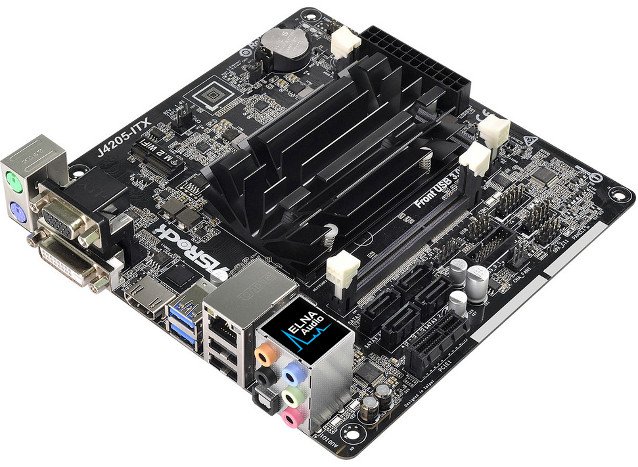You are viewing a single comment's thread from:
RE: My Local DTube IPFS is Up & Running (1TB) - Help Decentralize DTube!
I would absolutely share some of my 100mbs up/down to help this project. What are the chances you are willing to try to scale this down to Raspberry Pi ? If you were able to create an image, that anyone could download, and with very little effort, simply copy the image to their micro-sd card, boot the pi, make a few changes to their network settings, open a port on their router and have a d-tube load sharing device with a small footprint, low power consumption and be ready to rock?
I have ipfs on my server running. It has 2 SSD and consume 9.5 W without load. Its is fan-less server based on this board. Running on Linux mint xfce.

Wow thank You! Didnt know we have such tech avaiable.
Mayby Do overall post about what cheap low watt but powerfull enough cpus are out there to help stream Dtube, because now its easy, but when it gets popular there will be need to setup lots of comps for broadcast!
Which board is that? I can't make out the model number.
http://asrock.com/mb/Intel/J4205-ITX/index.asp
That's a really good idea. I will put it on the todo list for my PiTube project. Thanks!
Right on! Obviously, for those of us, slightly less proficient folk (from a networking perspective), it would need to be really easy to implement. As an example, I wanted to help the ToR project by offering up some bandwidth for an exit/entry node using Pi, but because there was a lack of easy to follow instructions, and total lack of an easily downloadable .img file, I could never wrangle it. Or I should say, I got frustrated and gave up.
I think that the "carrot on a stick" approach would be brilliant. In other words, you create an image that anyone can download. We download it, get the Pi up and running, and with little effort, get the node set up and able to handshake with the mothership and begin load sharing. Using some form of positive (device) ID like the mac address(?), the mothership can monitor up time for each node. Using a sliding scale of sorts, individuals with nodes running for hours, days, weeks or months at a time, are rewarded with Steem.
It seems like a wonderful way for individuals to "bet" on the system, and be rewarded for sharing their bandwidth, hardware and electricity.
Furthermore, tying the node to a user account, would also provide the ability for the mothership to monitor system "health" in a way that should a particular node go down, a bot emails the user to prompt them to reboot the node, or otherwise take action to get it back online.
Thinking a little bit further outside of the box, perhaps an app can be written that would allow the user to monitor node status and health remotely on their mobile devices, and would allow them to reboot the node remotely?
The faster these Pi and other similar devices get, the more they are potentially capable of doing.
I am so NOT technically savvy when it comes to networking particulars, but I am hip enough to waddle through easy to understand instructions, and have at least 30 Pi(2) units up and running on a daily basis at work. I use them as simple video playback devices using a version of "videolooper" on the set of the TV show I work on.
Anyway, please keep me posted. I am all about beta testing this with you as you get further along.
Respectfully,